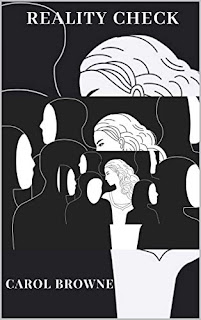Our Love Affair with Diaries
April 27, 2020 | Author Friend Promo
from Carol Browne
New year, new diary. This is still an annual ritual for many people in spite of new technology. For some things only pen and paper will do. As teenagers we tend to fill our diaries with complaints about the present and dreams of the future, a smorgasbord of teenage angst. As adults we use diaries as portable reminders of appointments and anniversaries; to-do lists designed to goad us into perpetual motion least we get to the end of another year with nothing to show for it.
But where did it all start?
The most famous diarist and one of the earliest was Samuel Pepys (1633-1703). It was Pepys who made the format a personal account rather than a business record and the eleven volumes of his diary (I have actually read them all!) are a fascinating description of day-to-day life in Restoration England. Although he was an administrator at the Admiralty and regularly encountered the Merry Monarch himself, Charles II, and other worthies of the time, he also had a fairly mundane home life which provides a wonderful contrast to his onerous duties at the office. While great affairs of state occupied his working life, his activities at home often vacillated between comedy and pathos. He wrote for himself (in fact the diaries weren’t published until 1825) and so it is no surprise that he unburdened himself with endearing honesty. You can take issue with him on many counts, most notably his adulterous behaviour, but he was only human and, while he had his flaws, he was compassionate and caring too. He was a man who adored his wife and hated cruelty of any kind, a man who worried deeply about the health of his mother yet had no time alone to be able to weep for her in peace. And let’s not even get started on the cystitis! Poor Pepys was a martyr to it.
Pepys lived at a time of great upheaval and transformation and we are so lucky that he thought to put his observations down on paper. We know about the Great Plague that ravaged the country but reading first-hand how Pepys walked to his office through eerily deserted streets makes it more real to us. Here is a man who knows how to buckle up. The Black Death may very well stalk old London town but staying at home won’t get that in-tray emptied! His descriptions of the Great Fire are also more riveting as a day-to-day account than they would be in any other narrative form. (Surely everyone knows about the very expensive Parmesan cheese he buried in the garden for safe keeping!)
When I wrote my novella Reality Check I knew that a diary format would be the best way to tell the story. The novella traditionally avoids chapter divisions, changes in POV and sub-plots and focuses on the personal development of the main character and a diary is a very personal thing—and for that perhaps we can say a big thank you to Samuel Pepys, the most famous diarist of them all!
Here’s a brief intro to my latest release. I hope you like it.
Gillian Roth finds herself in middle age, living alone, working in a dull job, with few friends and little excitement in her life. So far, so ordinary.
But Gillian has one extraordinary problem.
Her house is full of other people… people who don’t exist. Or do they?
As her surreal home life spirals out of control, Gillian determines to find out the truth and undertakes an investigation into the nature of reality itself.
Will this provide an answer to her dilemma, or will the escalating situation push her over the edge before she has worked out what is really going on?
BLURB
Thursday, 26th March, 2015.
My house is filled with people who don’t exist.
They have no substance. They are neither alive nor dead. They aren’t hosts or spirits. They aren’t in any way shape or form here, but I can see them, and now I need to make a record of how they came to be under my roof.
Why now? Why today? Because we line in strange times, and today is one of the strangest days this year; this is the day that Richard III, the last Plantagenet king of England, was interred in Leicester Cathedral, with all due ceremony, 530 years after he was slain at the Battle of Bosworth in 1485. How surreal is that? I watched the highlights on Channel 4 earlier. A couple of my house guests sat with me and together we marveled at the event. They did Richard proud, no doubt of that.
I left them to it after a while and came up here to my bedroom to start writing a diary: this diary.
Life feels unreal today, as if time has looped back onto photo albums. The house clearly passed must itself and everything is happening now. And if I can set my thoughts down on paper, perhaps I can make sense of everything, make it all real somehow.
Where did it start, this thing that has happened to me? A couple of years ago? I can’t say when. It evolved without my conscious input. The existence of my house guests was a fact long before I began to wonder at it. I do wonder at it now and I know I must keep track of what’s happening before I lose myself in this crowd of imaginary beings.
At first there was only a few of them, and I observed their doings without much concern. I watched them snooping around the place, choosing the most comfortable chairs to sit in, leaning against the furniture, inspecting the bookcases, checking the kitchen utensils, and peering into my photo albums. The house clearly passed muster and they stayed. In time, they knew me down to the marrow. I have never known them as well as they know me. They have an air of mystery, as though they have a life outside my house they will never divulge. Even so, I felt I was safe with them and I could tell them my problems. Tell them what no-one else must ever hear. And so these shades thickened, quickened; their personalities accumulated depth and solidity, as though they were skeletons clothing themselves in flesh.
I no longer came home to a cold, empty house, but to a sanctuary where attentive friends awaited my return. I was embraced by their jovial welcome when I stepped through the door. I never knew which of them would be there, but one or two at least would always be waiting to greet me, anxious to hear about my day and make me feel wanted, and for a while I could forget the problems I have at work (even the one that bothers me the most). Since then I have felt a subtle change.
But I’m getting ahead of myself. I really need this to be a faithful account of the entire situation from start to finish, so I have to try to work out how it all began, even if I’m not sure when.
If I cast my mind back, it floats like a lantern through a city cloaked in fog. I must try to isolate the shadowy figures that flit up at me out of the murk. So, let’s begin with the friend I remember first. I was cooking my evening meal. My mind wandered. I remember feeling sad. And there she stood, at my right elbow, peering into the saucepan.
“Watch you don’t burn that,” she said.
I don’t have names for my imaginary friends, just titles, so I call her Kitchen Girl. She’s dark-haired with porcelain skin, and she’s tall and voluptuous. The sort of woman I’d like to be except I’m small with red hair and a ruddy complexion, and I need chicken fillets to convince people I’m female.
I suppose Kitchen Girl is rather daunting, with those fierce blue eyes and no-nonsense approach to everything. I can stand up to her though. I use humour as my weapon of choice and she appreciates wit and banter. I’d like it if she didn’t nag so much, if I’m honest (“Use less salt… keep stirring… is that all you’re going to eat?”) but, criticism aside, I know she’ll compliment me on the finished product as it lies uneaten between us on the table. Long conversations back and forth have been played out while the meals go cold on their plates. Fried eggs congeal and go waxen. Ice cream melts into a tepid sludge. Sandwiches curl up with embarrassment to be so spurned. You know how it is when you get gossiping. Someone wants to talk to me and that’s better than food.
And sometimes, it’s curious, but it’s Kitchen Girl who cooks the food and serves it to me like a waitress. She likes to surprise me with new dishes.
I have no idea how this happens.
Nor why she never leaves the kitchen. But I wish she’d do the washing up now and then.
Stay connected with Carol on her website and blog, Facebook, and Twitter.








